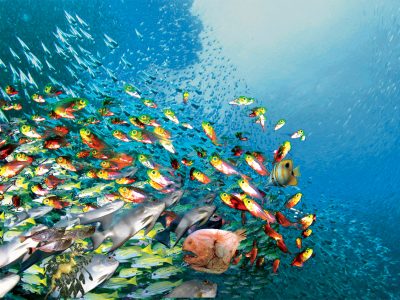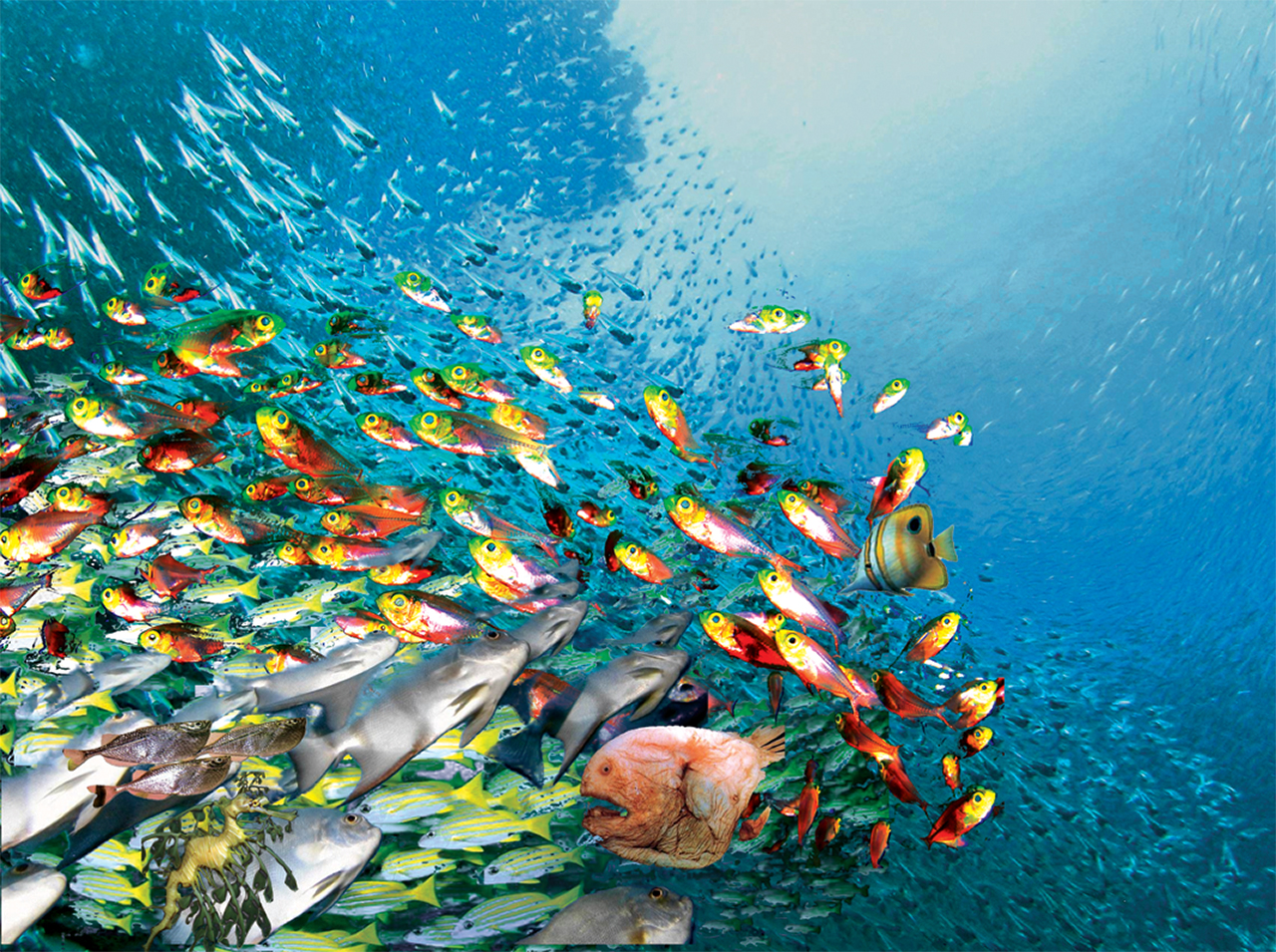

In the Before Time, I spoke with a few ocean scientists on climate issues, and I heard a common refrain. Climate change receives little attention or funding, given the magnitude of the problem; climate impacts on oceans get even less; and marine carbon removal gets almost none at all.
Humans are short-lived terrestrial creatures. When we do think about climate change, we tend to focus on its immediate impacts on land, like hurricanes, heatwaves, droughts, and forest fires. But the oceans are also undergoing massive changes. Ocean waters are warming and their chemistry is changing—becoming more acidic at a faster rate than any seen in the past 65 million years (and ten-times faster than the acidification rate preceding a mass extinction 55 million years ago). The scale and speed of those changes forebode significant impacts on ecosystems and human societies for centuries to come. We need more resources and research in this space: to better anticipate climate’s impacts, to develop adaptation strategies, and to draw carbon dioxide from the atmosphere.
I recently published a short piece with my colleague Wil Burns in One Earth, describing the need for more funding and smart governance on marine carbon removal strategies. We specifically examined an idea called artificial ocean alkalinization (“AOA”), a technique that would increase ocean carbon uptake by depositing certain minerals into the ocean, limiting ocean acidification in the process. (If you’re hungry for more details, I wrote a rather in-the-weeds post about AOA on this blog earlier this year.)
Our argument is simple. AOA’s potential for carbon removal and anti-acidification makes it an idea worth exploring, especially considering the gigatons of negative emissions needed to safely stabilize the climate. We’re wary, though, of the hype and carelessness associated with ocean iron fertilization, another marine carbon removal idea that fizzled out in the 2010s. That’s why research into AOA should proceed cautiously and in alignment with sound international governance.
Good governance of marine carbon removal entails some commonsense and not-so-burdensome requirements. Open experiments up to review by other scientists. Consult with national governments. Undergo environmental assessments. Minimize risks to marine ecosystems. These steps can ensure better data, greater legitimacy, and less harm at relatively low cost.
We need to move quickly and carefully on marine carbon removal. For AOA, this means starting small, focusing on its potential climate adaptation benefits (that is, anti-acidification). Emphasizing its potential as an adaptation strategy would allow researchers to build support among stakeholders historically and understandably wary of carbon removal proposals. It would also allow AOA to avoid some of the hype-cycle that has come with other climate-fix technologies.
As we conclude in the piece:
Experience with local AOA treatments might encourage greater depositions to capture more carbon. It might not. But this moderate path—gradual, incremental exploration of AOA as an adaptation measure with [carbon removal] as a potential co-benefit—would allow governance structures to mature alongside advances in technical understanding. Future policymakers would then be well positioned to decide whether to scale up AOA for [carbon removal]. The risks, rewards, and uncertainties of deployment would be better understood.
You can read more about AOA in One Earth, here.
The post Time to Get Serious about Climate Change and Oceans appeared first on Legal Planet.
By: Charles Corbett
Title: Time to Get Serious about Climate Change and Oceans
Sourced From: legal-planet.org/2020/08/31/time-to-get-serious-about-climate-change-and-oceans/
Published Date: Mon, 31 Aug 2020 11:19:27 +0000
Vist Maida on Social Me
Website Links
Maida Law Firm - Auto Accident Attorneys of Houston, by fuseology
No comments:
Post a Comment